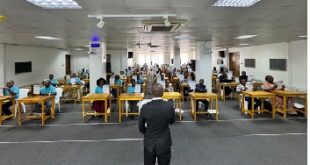The School of International Studies (SIS), Jawaharlal Nehru University (JNU), in collaboration with Green Humans, organized a workshop titled “Towards Green Future: India’s Climate Stewardship.” The event gathered academics, environmentalists, policymakers, and students to discuss India’s climate challenges and sustainability efforts.
The workshop began with an address by Prof. Amitabh Mattoo, Dean of SIS, JNU, who emphasized the role of academia in shaping climate policy. “Workshops like these build awareness and practical solutions,” he said.
Prof. Sanjay K. Pandey highlighted climate change’s socio-economic impact, particularly on marginalized communities. “It disrupts lives and livelihoods, forcing migration, especially among women,” he noted.
Speakers addressed key environmental concerns, including worsening disasters due to unplanned development, Delhi’s severe air pollution, and rising heatwaves and water scarcity. Dr. Niidhi Pandey (Founder & Director, Green Humans) acknowledged India’s sustainability progress but stressed the need for community-driven action.
Prof. Atul Kumar (Energy Studies Programme, SIS, JNU) and Prof. Arun K. Srivastava (School of Environmental Sciences, JNU) emphasized the urgency of India’s green energy transition, highlighting the need for fuel diversification, enhanced energy efficiency, and strict air pollution control to mitigate public health risks.
Dr. Shilpi Tewari, Research Fellow, RMIT University, Melbourne, highlighted the environmental challenges of rapid urbanization, including air pollution, water scarcity, and waste management. “Sustainable urban planning, clean energy adoption, and expanding green spaces are crucial for building resilient, livable cities,” she stated.
Outdoor enthusiast Sharmila Yeddanapudi discussed responsible tourism, urging travelers to reduce plastic use, support local businesses, and follow sustainable practices. “Education and better infrastructure are key to preventing environmental damage,” she said.
Vaishali Raghuvanshi highlighted the intersection of gender and climate issues, stressing that empowering women enables them to lead conservation efforts. “Eco-feminism will shape sustainable development in the coming years,” she stated.
Aparna Arunachalam, a waste management ecopreneur, presented updates on the Solid Waste Management Rules Draft 2024, set for implementation in October 2025. She outlined stricter waste segregation measures and enforcement, warning that ineffective implementation will worsen the crisis.
Before concluding, the organizers extended their gratitude to Dr. Shakti P. Srichandan for his invaluable IT support in making the event successful.
The workshop ended with a strong call for action, urging government agencies, academic institutions, businesses, and communities to work together to address climate change. Participants left with a renewed commitment to sustainability, recognizing that policy reforms, industry accountability, and grassroots participation are essential for progress.
 Newspatrolling.com News cum Content Syndication Portal Online
Newspatrolling.com News cum Content Syndication Portal Online







